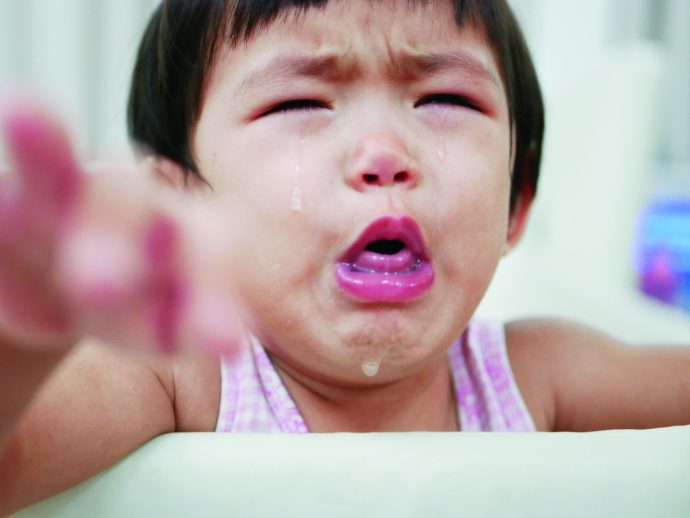Coughs in children are not unusual. In fact, as parents, we tend to brush them off as no big deal. However, not all coughs are equal. Some may actually be a sign of a more serious issue. Therefore, it is important for parents to understand the different types of coughs in children.
What are the different types of coughs and their causes in children?
- Productive (wet) coughs –When a child coughs up a thick and sticky fluid (mucus). In some cases, the mucus may be green or yellow in colour, which may be a sign of a respiratory infection (e.g. common cold, influenza, etc.).1
- ‘Barky’ coughs– Often described as a harsh “seal-like barking” sound, “barky” coughs are known to be a symptom of a condition known as croup. This happens as a result of an inflammation of the upper airways, often accompanied by a hoarse voice and high-pitched squeak sound when breathing.2 In the majority of cases, croup can be caused by viral infections.3
- Coughs with wheezing –Characterised by a high-pitched whistling sound, most noticeable when breathing out and is often caused by a constriction of the airways (e.g. viral bronchiolitis, asthma, etc.).3,4 Wheezing coughs may also be caused by a blockage in the airways due to a foreign object.4
- Lasting coughs– Coughs that last a long period of time (i.e. multiple weeks) can be a sign of a viral infection.2 Other causes may include asthma, allergies, or chronic conditions that affect the respiratory system.1,2
- ‘Whooping’ coughs– Episodes of short and fast-paced coughs accompanied with a “whooping” sound when the child breathes in.1,5 It is caused by a vaccine-preventable disease called pertussis, which can cause breathing difficulties in young children.1
| Summary of Common Causes of Coughs in Children6 |
| · Respiratory tract infections (bacterial, viral, etc.)
· Pneumococcal disease · Allergies · Asthma · Gastroesophageal reflux (GER) · Environmental irritant (e.g. cold air, second-hand smoke, pollution, etc.) · Ingestion of foreign objects · Issues with swallowing or structural problems with the windpipe |
When should parents worry about coughing in their child?
Coughing can be serious. Speak to your doctor if your child has coughing alongside any of the following symptoms1,2:
- A high fever (greater than 38°C)
- Blue coloured lips, face, or tongue
- Excessive crankiness or sleepiness
- Difficulty breathing (e.g. fast breathing, shortness of breath, etc.)
- Dehydration (e.g. dizziness, dry mouth, sunken eyes, peeing less often, etc.)
- A “whooping” sound when breathing in after coughing
- Coughing blood
Preventing coughs in children
Coughs are a non-specific symptom that can happen in many different conditions in children. As such, the prevention of coughs is dependent on the cause. Nevertheless, here are some general tips to prevent coughs in children:
- Practise good hygiene. This can include things like regular hand washing with soap and avoiding touching your face with your hands. This can help prevent the spread of infections that can cause coughs.6
- Stay up to date with immunisations. Certain infectious diseases that cause coughs in children can be prevented through vaccinations.6 For example, whooping cough can be prevented by ensuring that young children take the Diphtheria Tetanus Pertussis (DTaP) vaccine.7 In addition to this, pregnant mothers can take the Tetanus Diphtheria Pertussis (Tdap) vaccine to provide protection to their newborn.7 Other examples of vaccine preventable diseases include pneumococcal disease and influenza.6
- Stick to an asthma/allergy action plan. If the cause of coughing is due to asthma or allergies, it is important for parents to consult with a healthcare professional to determine an action plan. This can help reduce the severity and frequency of coughs.6
- Remove choking hazards. Avoid providing your child with any foreign objects that pose a potential choking hazard.6 For example, coins, plastic toys, product packaging, etc.
Conclusion
In conclusion, it is crucial for parents to realise that a child’s cough can signal serious problems. By knowing the different types and taking preventive steps, we can protect our children’s health. Being informed and proactive is our best defence.





